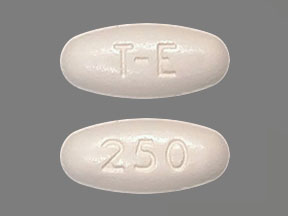Telotristat Disease Interactions
There are 3 disease interactions with telotristat.
Telotristat (applies to telotristat) constipation
Moderate Potential Hazard, Moderate plausibility.
The use of telotristat reduces bowel movement frequency and may cause gastrointestinal effects including, constipation, intestinal perforation and obstruction. It is recommended to monitor for the development of constipation and/or severe, persistent, or worsening abdominal pain in patients taking telotristat and to discontinue its use if severe constipation or severe persistent or worsening abdominal pain develops. Care is recommended when using telotristat in patients suffering from constipation. .
Telotristat (applies to telotristat) hepatic impairment
Moderate Potential Hazard, Moderate plausibility. Applicable conditions: Liver Disease
Population pharmacokinetic analysis showed that mild hepatic impairment does not affect the pharmacokinetics of telotristat. Care is recommended when using telotristat in patients with moderate or severe hepatic impairment as this agent has not been studied in this patient population.
Telotristat (applies to telotristat) renal dysfunction
Moderate Potential Hazard, Moderate plausibility. Applicable conditions: hemodialysis
Population pharmacokinetic (PK) analysis showed that creatine clearance does not affect the PK of telotristat. Care is recommended when using telotristat in patients with end-stage renal disease (ESRD) who require dialysis as this agent has not been studied in this patient population.
Switch to professional interaction data
Telotristat drug interactions
There are 361 drug interactions with telotristat.
Telotristat alcohol/food interactions
There are 2 alcohol/food interactions with telotristat.
More about telotristat
- telotristat consumer information
- Check interactions
- Compare alternatives
- Reviews (4)
- Side effects
- Dosage information
- During pregnancy
- Drug class: miscellaneous GI agents
- En español
Related treatment guides
Drug Interaction Classification
| Highly clinically significant. Avoid combinations; the risk of the interaction outweighs the benefit. | |
| Moderately clinically significant. Usually avoid combinations; use it only under special circumstances. | |
| Minimally clinically significant. Minimize risk; assess risk and consider an alternative drug, take steps to circumvent the interaction risk and/or institute a monitoring plan. | |
| No interaction information available. |
See also:
Further information
Always consult your healthcare provider to ensure the information displayed on this page applies to your personal circumstances.


